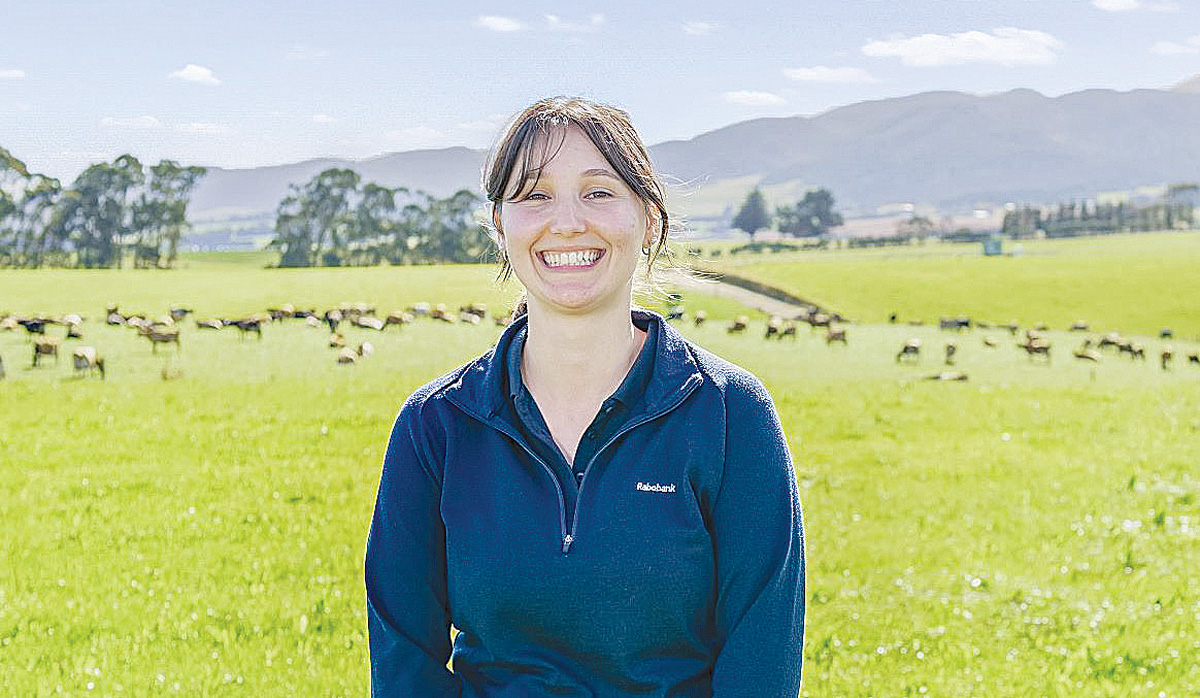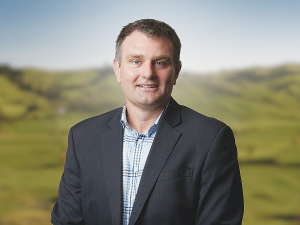The 18 month-long programme offers university graduates with an interest in agri banking the opportunity to begin their careers with the global specialist agribusiness bank.
Up to six graduates from around the country will be selected for the programme, where they will gain experience and be given career development support, within the bank's country banking division.
Applications for the programme close on Friday August 18 and the new intake of graduates will begin the programme early next year.
Rabobank New Zealand general manager for country banking Bruce Weir says the bank officially launched its Graduate Programme in 2021 following a successful pilot programme which began in 2019.
"As a food and agri banking specialist, we are well aware of the need to attract more talented young people into roles across the sector, and our graduate programme is one of the initiatives we are undertaking to help achieve this objective," he says.
"Our team is passionate about the agricultural industry and the rural communities where our clients live. And as part of the programme, graduates will gain valuable insights into how we work alongside our clients to grow their business in a way that is sustainable for themselves, the environment, their farm and for our country."
Weir says graduates on the programme will spend time with several different teams in several locations across the bank's country banking division.
The programme is broken up into three six-month rotations which give participants an opportunity to spend time working as part of the country banking team in several of the bank's 27 offices located across New Zealand.
They'll also receive mentoring and take part in personal insight sessions as well as learning more about some of the bank's other divisions - including products and deposits, risk, and compliance.
Weir says past and present graduate programme participants were making a significant contribution to the bank.
"Including pilot programme participants, we've now employed more than 30 graduates as part of the programme.
"These graduates have been a great addition to the business, and I've been really impressed by their enthusiasm and desire to learn," he said.
"The New Zealand Leadership team really enjoy interacting with the grads and find their fresh perspective on the bank, the industry, and the future hugely valuable."
With strong demand expected for a place on the programme, interested recent graduates (or those eligible to graduate prior to February 2024) are urged to apply before August 18 at www.rabobank.co.nz/graduate-careers/
A Great Grounding for People
One of the 2021 intake of graduates, Ashley Kowaleski, says the bank's graduate programme had provided her with a great grouning for the role she has now moved into as an agribusiness analyst based in Hamilton.
"The way the programme is set up with the three six-month rotations allowed me to gain an insight into the differences in approaches and working styles between different managers and analysts and to tap into the wide range of skills and experience across the Rabobank staff network," she said.
"I also really valued the strong focus on my own personal development, which included being encouraged to think about my goals, what skills I wanted to learn and where I wanted my career to head.
"My time on the graduate programme enabled a smooth transition into the analyst role and the responsibilities that come with it. I was able to gain an understanding of some of the various aspects of banking and tasks within the analyst role without the pressure of being in a full-time role, and with the flexibility to get out of the office and on farm, as well as to attend various workshops and events.
"The networks I have developed have also given me a robust support network."
 |
|---|
|
Ashley Kowalewski says the programme provided a great grounding for the role she has now moved into as an agribusiness analyst based in Hamilton.
|
Another programme participant, Tom Woelders - who joined Rabobank in February this year as part of the 2023 graduate intake - said he enjoyed his first five months with the bank which has seen him based in the Rabobank Masterton office.
"The grad programme has allowed me to grow as an individual whilst learning about different roles, responsibilities, and processes within the bank. Although it can be a lot to start off with, the grad programme creates opportunities and the time to learn," he says.
"A few weeks after I started, I got the chance to attend an event in Sydney for all Rabobank employees across New Zealand and Australia. This was a fantastic opportunity to learn more about the bank and to meet other staff.
"I've also spent time at the bank's New Zealand head office in Hamilton and was able to meet members of the New Zealand Leadership Team. I've really enjoyed meeting new people, building networks and developing relationships with staff across New Zealand and Australia."
While based in different locations across the country, Woelders says the 2023 intake of graduates were a tight-knit bunch and maintained regular contact.
"We've had an in-person get together in Hamilton and we also have a weekly call to discuss our experiences and what we're working on. It's been really good to have the opportunity to regularly talk to others who are on the programme and new to the bank like me," he said,
"I've just about completed my first rotation and I'm really looking forward to working with different teams and developing more skills across the next couple of rotations."



















